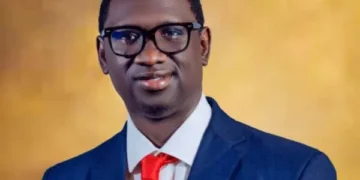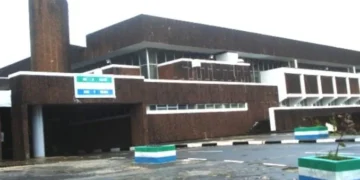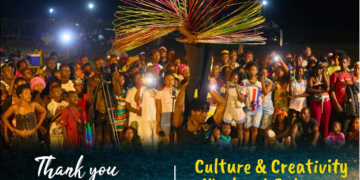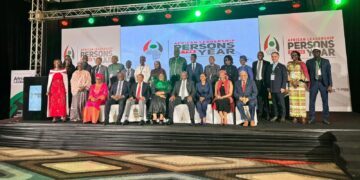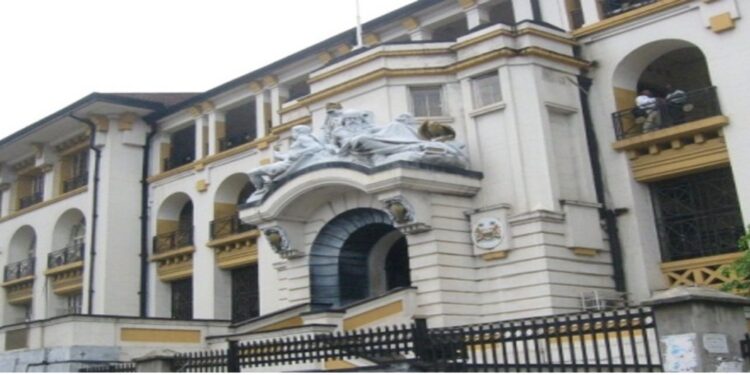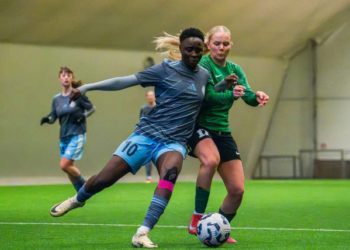Judiciary of Sierra Leone
By Alieu Amara Suwu (amarasuwualieu01@gmail.com/MRCG/ATJLF Fellow 2025)
Henry Coker (not his real name), a senior teacher in his late fifties, ponders on his ordeal with the Judiciary of Sierra Leone in 2015. For him, the magistrate court is a corrupt institution.
Coker was accused of sexually penetrating a minor. In an effort to defend himself, he and his lawyer approached the magistrate privately in his chambers. He claims the magistrate bluntly told them that the case had already been influenced and could only be referred to the High Court at that point.
When the case reached the High Court, Coker said they heard rumors that the presiding judge (name withheld) was a former schoolmate of the child’s father. They later confirmed this to be true, he said
“The close relationship between the judge and the child’s father seemed to work against me,” Coker said. “I was detained and denied bail for several weeks.”
“After multiple adjournments and no substantial evidence being presented, the case was eventually adjourned indefinitely, leaving my reputation in ruins, “Coker added. I tried to challenge the outcome but was warned not to pursue it unless I wanted to risk spending years in prison.”
Silent for a while, Coker groans as he narrates his ordeal.
“The judiciary is meant to act as a neutral arbitrator of justice and relief,” he says, adding however that in Sierra Leone, the independence and legitimacy of the judiciary is in doubt.
Subsection 3 of section 120 of the Constitution of Sierra Leone, 1991, Act No. 6 of 1991, states: “In the exercise of its judicial functions, the Judiciary shall be subject to only this Constitution or any other law, and shall not be subject to the control or direction of any other person or authority.”
Yet, Coker’s deprivation of justice – as one the fundamental human rights – had come from “powers from above”.
Accusations of bias at the judiciary are no new thing. Critics say its effectiveness is often undermined by political interference, corruption, inefficiency, and limited access to justice for marginalized groups. And this issue is also well captured in the post-war Truth and Reconciliation Commission report.
In its Volume One on page 10, paragraph 12, it reads: “By the start of the conflict, the nation had been stripped of its dignity. Institutional collapse reduced the vast majority of people into a state of deprivation. Government accountability was non-existent. Political expression and dissent had been crushed. Democracy and the rule of law were dead. By 1991, Sierra Leone was a deeply divided society and full of the potential for violence. It required only the slightest spark for this violence to be ignited. The Commission traced the roots of these lapses through the post-independence period and into the colonial period in the chapters entitled “Historical Antecedents to the Conflict” and adequately addressed strengthening the judiciary and the rule of law, as well as Parliament and the electoral system.”
Besides, the International Center for Transitional Justice (ICTJ) stated that public institutions—such as the police, military, and judiciary—are often instruments of repression and systemic violations of human rights in societies experiencing conflict or authoritarianism. The TRC stressed upholding justice and protecting fundamental human rights as a focal point for peace and cohesiveness for a nation.
There have no doubt been some positive developments in terms of reform in the sector, especially in terms of adjudicating justice and addressing disputes and corruption.
The Institute for Governance Reform (IGR) and Afro Barometer’s 2025 survey provides interesting data that speaks to this. “Fewer than half (48%) of Sierra Leoneans say they feel somewhat confident or very confident that ordinary people can obtain justice in the courts.”
It continues: “A slim majority (51%) expresses little or no such confidence.”
These challenges Sierra Leoneans face with accessing justice highlight most significant shortcomings in the country’s fledgling democracy, posing threats to Sierra Leone’s democratic aspirations. Few key recommendations by the TRC include the creation of an efficient case flow management system, especially over delays in judgment as well as mechanisms for the proper scheduling of cases; complacence in violations of human rights; improvement in convictions in corruption matters; representation on the Judicial and Legal Service Commission responsible for appointing judges to be broadened with representation from parliament and law teaching profession; extension of the retirement age of judges and ceasing the practice of hiring retired judges on a contract basis; and binding and enforceable code of conduct for judges and other legal professionals.
The TRC, in its final report, also highlighted “the need for institutional reform and independence of the judiciary” as a critical recommendation.
Despites acclaimed reforms by the Judiciary communication wing, such as digitalization, human capacity development, improved access to justice, launch of virtual courts and a responsive website for case information, training programs for judicial staff, efforts to increase the number of deployed magistrates and judges – especially women, and also a push to address specific issues like drug cases and human trafficking through dedicated judges and extended court hours, the perceptions and experiences almost remain virtually the same 20 years after the TRC recommendations were made. These perceptions and experiences, again, are evident in the published 2025 Afro Barometer survey conducted in conjunction with IGR: It reveals that “more than a third of respondents believe that most judges and magistrates are corrupt, and nearly half say penalties are too lenient for the powerful, reinforcing widespread perceptions of inequality before the law.”
The fourth volume of the TRC report further outlines a roadmap for reconciliation and sustainable peace. It calls for systemic reforms, including economic reforms, strengthening governance, and fostering national unity to address the root causes of the conflict. One key recommendation, as mentioned above, is the creation of an efficient case flow management system, especially over delays in judgment as well as mechanisms for the proper scheduling of cases.
Ishmail Saidu Kanu, a Barrister and Solicitor of the High Court of Sierra Leone, is the Parliamentary Officer at IGR. He believes that the Judiciary has taken some steps to implement the TRC recommendation for an efficient case flow management system, but he noted that more needs to be done to realize full implementation.
“Reforms such as the Criminal Procedure Act 2024, the e-Justice Blueprint, and the Justice Sector Reform Strategy 2024–2030 aim to improve case scheduling and reduce delays,” he cited.
However, Barrister Kanu believes that “the court backlogs and slow judgments remain a challenge, and civil society groups have noted that digital systems and case management reforms are not yet fully operational.”
Derick M. Conteh, Admin and ICT Director at the Justice Sector Coordination Office (JSCO), says the ambition to conclude trials within a reasonable timeframe has been a persistent and central focus of reform, but with mixed results due to deep-seated systemic challenges. The JSCO provides strategic direction to reforms in the justice sector.
Conteh says they have implemented several key initiatives, such as introducing stricter timelines for filing processes and limiting the granting of adjournments.
“The establishment of Fast-Track Courts for specific, high-volume cases such as minor commercial disputes and certain sexual offense cases has shown promise in reducing backlog,” he said.
However, in his assessment, the issue is rarely a lack of will but a confluence of constraints.
“Resource constraints are fundamental: we simply do not have enough judges, magistrates, court reporters, or functioning recording systems for our caseload,” he says. “The ‘adjournment culture’ is not merely a bad habit; it is often a symptom of these deeper issues—counsel may be engaged in another court, a file is missing, or a key witness is unavailable due to lack of witness protection or support.”
In the National Forum for Human Rights’ submission to the TRC (Appendix 2, Part 1: Submissions), it indicates that the Judiciary has not been independent for the past two decades.
The Forum’s submission further states that the executive arm of government was directly involved in the judicial processes, which invariably inhibited access to justice. Backlog of cases became the order of the day as the courts became overcrowded with cases. People were held in custody for long periods without trial. Most Magistrates and judges were accused of being notorious for bribe taking and were known to have adjudicated matters in favour of their clients.
“There is often subtle and sometimes direct pressure from the executive,” a senior staff of the Judiciary, speaking on condition of anonymity, said recently. “Promotions, transfers, and appointments are not always based on merit. Judges may fear retribution or lack the resources to assert independence.”
Experts say governments curtail judicial independence when executive power is highly centralized. The reasoning is that under a strong presidency, opposition forces have greater incentives to challenge the executive, which, in turn, increases the president’s motivation to control the judiciary as a defensive measure.
Conteh agrees, noting: “a key challenge they continue to navigate is the de facto pressure that can be exerted through various means.” He however observes “a growing institutional confidence, particularly in the higher level of the judiciary, to act as a constitutional check,” stressing that “the real safeguard is the consistent application of the law, without fear or favour, in every single case that comes before the courts.”
Barrister Kanu also asserts that reforms are taking place, citing the strengthening of judicial independence through the Judicial and Legal Service Commission, organizing training on human rights and ethics, improving transparency and case management, and working with oversight bodies like the Human Rights Commission.
This story is brought to you with support from the Africa Transitional Justice Legacy Fund (ATJLF) through the Media Reform Coordinating Group (MRCG), under the project ‘Engaging Media and Communities to Change the Narrative on Transitional Justice Issues in Sierra Leone


